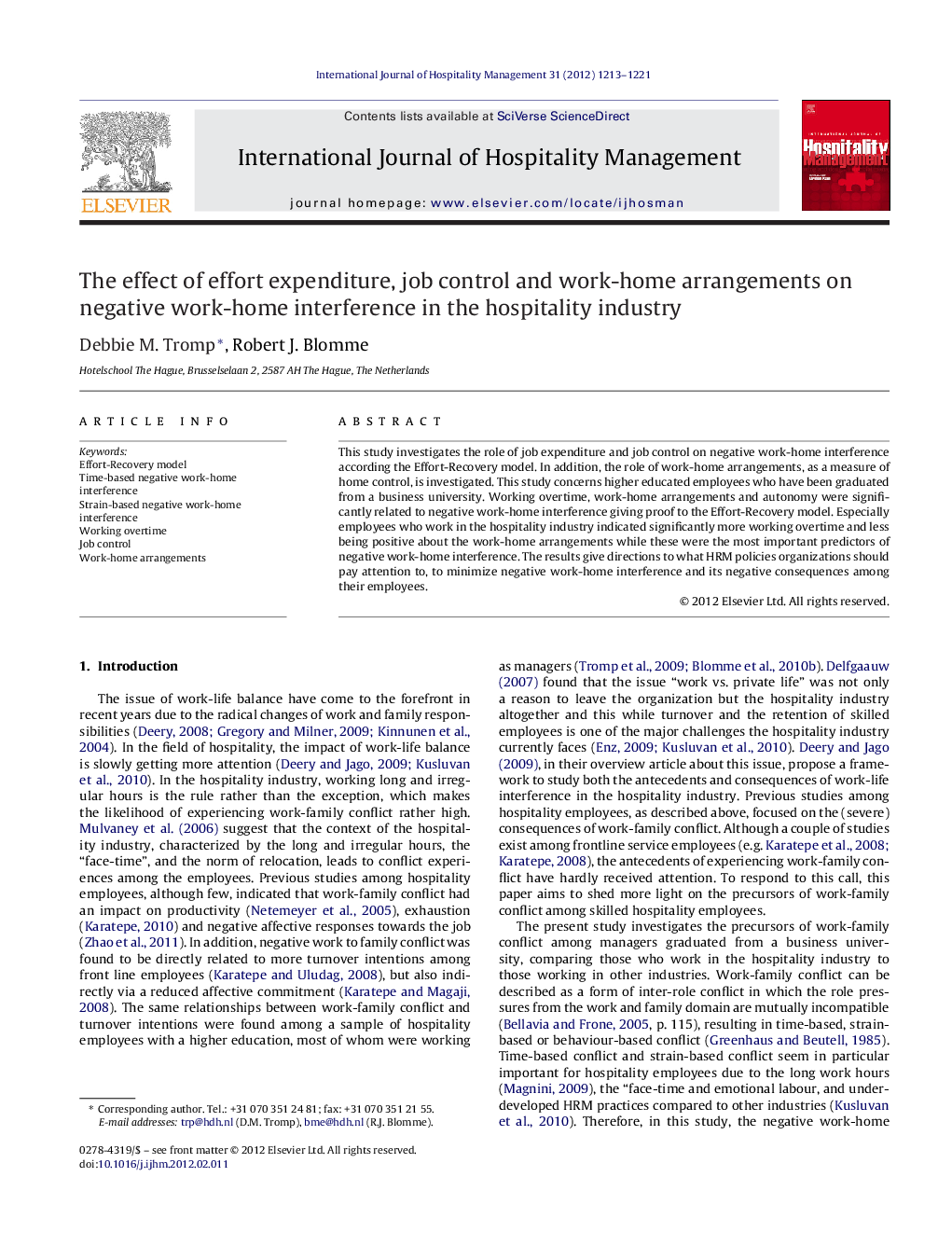| Article ID | Journal | Published Year | Pages | File Type |
|---|---|---|---|---|
| 1009882 | International Journal of Hospitality Management | 2012 | 9 Pages |
This study investigates the role of job expenditure and job control on negative work-home interference according the Effort-Recovery model. In addition, the role of work-home arrangements, as a measure of home control, is investigated. This study concerns higher educated employees who have been graduated from a business university. Working overtime, work-home arrangements and autonomy were significantly related to negative work-home interference giving proof to the Effort-Recovery model. Especially employees who work in the hospitality industry indicated significantly more working overtime and less being positive about the work-home arrangements while these were the most important predictors of negative work-home interference. The results give directions to what HRM policies organizations should pay attention to, to minimize negative work-home interference and its negative consequences among their employees.
► Higher educated hospitality employees report more working overtime than higher educated employees in other industries. ► Hospitality employees are less positive about the work-home arrangements offered by the organization than employees in other industries. ► Working overtime and lack of work-home arrangements are strong predictors of time-based and strain-based negative work-home interference. ► The lack of work-home arrangements is especially important for female employees.
